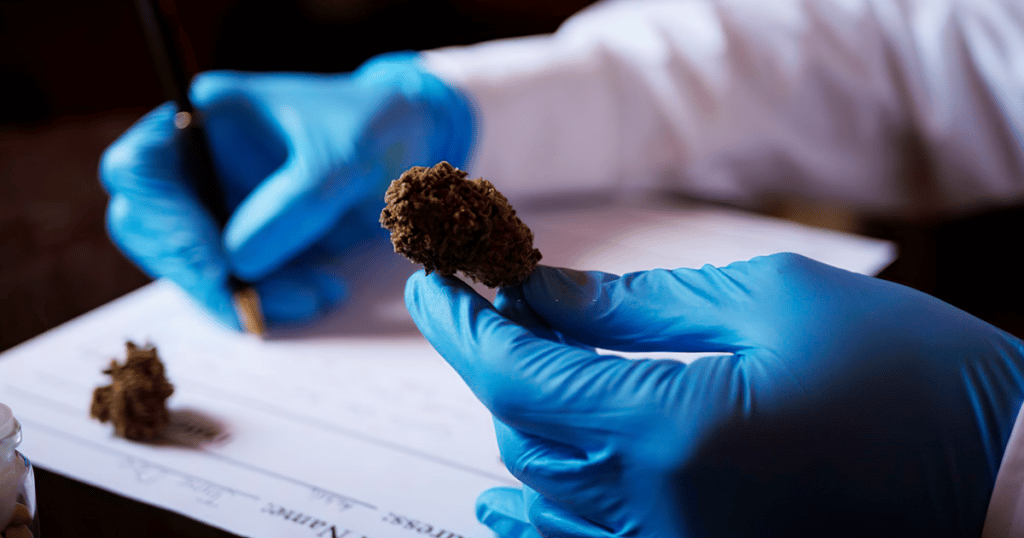News of a tentative deal between railroad workers, unions, and companies this week may have staved off a railroad workers’ strike on the 16th of September. However, a congressman stated that the potential conflict is a broader need to address labor and supply chain issues. Included in these issues is the need to end employment-related marijuana testing policies.
The threat of the strike was extremely concerning to commuters and citizens all over the country and even prompted President Joe Biden to make a statement on the matter.
According to the Illinois Policy, a railroad worker strike would result in chaos across the United States. A strike would freeze 30% of U.S cargo shipments, costing the economy roughly $2 billion daily. The strike would stop the Amtrak and Metra trains from running, affecting millions of citizens.
During an appearance in C-SPAN’s Washington Journal on Thursday, the 15th of September 2022, Rep. Earl Blumenauer (D-OR) discussed the issue of ending employment-related marijuana testing policies along with other aspects of cannabis reform.
Blumenauer mentioned that the railroad worker deal was “welcome news” and the “situation that the workers faced was intolerable.”
To work on the railroads, workers require specialized skills. While railroad workers are generally well-paid, there has been a gradual decline in workplace benefits and job security, resulting in tension between workers and employers. This tension has also contributed to supply chain problems.
One solution to the above issues would be eliminating drug testing mandates for marijuana. Eliminating drug testing mandates for marijuana would encourage would-be applicants and prevent qualified workers from losing their jobs or being punished even if they are not under the influence of marijuana while at work.
“A lot of the shortcomings in terms of the supply chain are due to workers not qualifying for the jobs, due to testing positive for marijuana in the last six weeks, which doesn’t affect their ability to do their job, but the positive test result throws them out of the consideration,” Blumenauer continues.
Blumenauer further mentioned a bipartisan cannabis research legislation that he is sponsoring. The legislation cleared the House in July and is expected to advance through the Senate in short order.
The Medical Marijuana Research Act
The Medical Marijuana Research Act does not explicitly address workplace policies. However, the act is meant to help streamline studies by removing red tape that scientists are currently having to go through to access Schedule I substances for research purposes.
Currently, there is widespread, bipartisan support for cannabis research and, more specifically, support for developing technology that can determine active on-the-job impairment from THC instead of identifying cannabinoid metabolites present within a person’s system for days or weeks after consumption.
Suppose employers had a way to test for functional impairment when an employee is suspected of being intoxicated from cannabis while at work. Workplace policies should be revised to implement new testing technology and allow off-duty marijuana use, encouraging new applicants and safeguarding workers.

Not The First Time Current Laws Have Affected The Supply Chain
The treat of the railroad workers’ strike came months after Blumenauer wrote a letter to Transportations Secretary Pete Buttigieg. The letter argued that the current policies involving drug testing of truckers and other commercial drivers for marijuana were costing drivers their employment and further contributing to supply chain issues.
Blumenauer further cited the Department of Transport (DOT) data that proved that tens of thousands of drivers are being disqualified from being able to work because of drug testing policies around THC.
Blumenauer stated that while nobody wants drivers to be impaired while on the roads, there currently aren’t any tests that can detect functional impairment.
As of now, DOT Secretary Pete Buttigieg has not explicitly spoken about marijuana testing policies. However, he campaigned on legalizing cannabis and decriminalizing another currently illicit drug while running for president in 2020.
Recently, DOT approved a proposal to allow saliva-based THC tests as an alternative option to urine-based screenings for employees in the trucking and commercial driving industry. Saliva-based THC is generally able to detect THC within an employee’s saliva during a one to 24-hour period after use compared to weeks when a urine test is used.

Enjoyed that first hit? Come chill with us every week at the Friday Sesh for a freshly packed bowl of the week’s best cannabis news!
- Facebook and Instagram Loosen Cannabis Restrictions, But Is It Enough From Meta?
- Combating Violent and Dangerous Crime Act Targets “Candy-Flavored” Cannabis Products
- Retail Spotlight – Mayflower in Lowell, MA
- Benzinga Chicago 2025 Recap
- Iowa’s Surprising Veto of Psilocybin Bill HF 383
- North Carolina House Bill 328 and the Growing Trend of Hemp Regulation in the U.S.













